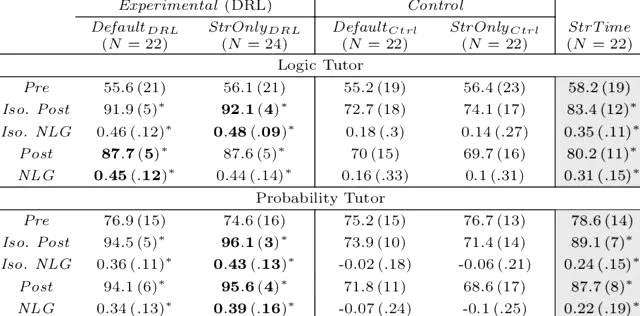Leveraging Deep Reinforcement Learning for Metacognitive Interventions across Intelligent Tutoring Systems

Abstract
This work compares two approaches to provide metacognitive interventions and their impact on preparing students for future learning across Intelligent Tutoring Systems (ITSs). In two consecutive semesters, we conducted two classroom experiments: Exp. 1 used a classic artificial intelligence approach to classify students into different metacognitive groups and provide static interventions based on their classified groups. In Exp. 2, we leveraged Deep Reinforcement Learning (DRL) to provide adaptive interventions that consider the dynamic changes in the student’s metacognitive levels. In both experiments, students received these interventions that taught how and when to use a backward-chaining (BC) strategy on a logic tutor that supports a default forward-chaining strategy. Six weeks later, we trained students on a probability tutor that only supports BC without interventions. Our results show that adaptive DRL-based interventions closed the metacognitive skills gap between students. In contrast, static classifier-based interventions only benefited a subset of students who knew how to use BC in advance. Additionally, our DRL agent prepared the experimental students for future learning by significantly surpassing their control peers on both ITSs.